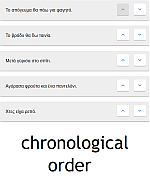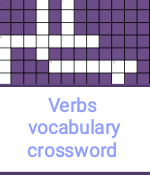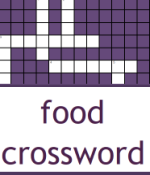Educative Capstone (epistegasma.com) uses cookies to ensure an optimal learning experience for our students and other website users. Cookies help us understand your learning goals, questions and requirements, so we can answer them efficiently.
Author: Christina
-

Ordinals
Can you use the ordinal numbers correctly? Check below: Back to the main Homework page
-

Animals word puzzle
Test your vocabulary skills. How many animals do you know in Greek?
-

Chronological order
Can you recognize tenses and expressions of time? Rearrange the sentences to read the story correctly. Back to the main Homework page
-

Verbs vocabulary crossword
Test your vocabulary skills. How many verbs can you find? Back to the main Homework page
-

Θέλω να, πρέπει να, μπορώ να + verb
The structure verb + verb only exists for auxiliary verbs, to form tenses (eg έχω φάει). For verbs such as “want”, “can”, “have to” etc, the structure should be verb + να + verb. Practice by completing the sentences below. Back to the main Homework page
-

Food vocabulary crossword
Test your vocabulary skills. How many food items can you find? Back to the main Homework page
-
French beginners
-

Cases: what they are and how to use them
Greek nouns are volatile. Their form and spelling change according to their case. A case represents the noun’s role and function in a sentence. Modern Greek has four cases: the nominative (ονομαστική), the genitive (γενική), the accusative (αιτιατική) and the vocative (κλητική). The nominative mainly replies to “Who?” and is the subject of the verb.…
-

Verbs
Examples with “έχω”: Έχω ένα πρόβλημα. (I have a problem.) Έχεις δύο παιδιά. (You have two children.) Έχει αυτοκίνητο. (He has a car.) Έχουμε χρόνο. (We have time.) Έχετε τρία εισιτήρια. (You have three tickets.) Έχουν ραντεβού. (They have an appointment/ date.) You can use the verb έχω as a conjugation model for several…
-

How to use the articles
There are two kinds of articles: the definite article (equivalent to “the”) and the indefinite article (equivalent to “a, an”). Articles must follow the noun’s gender, number and case (the noun’s function in a sentence). Τip: Study the articles together with nouns. You will learn them faster and you may also remember the cases more easily.…
